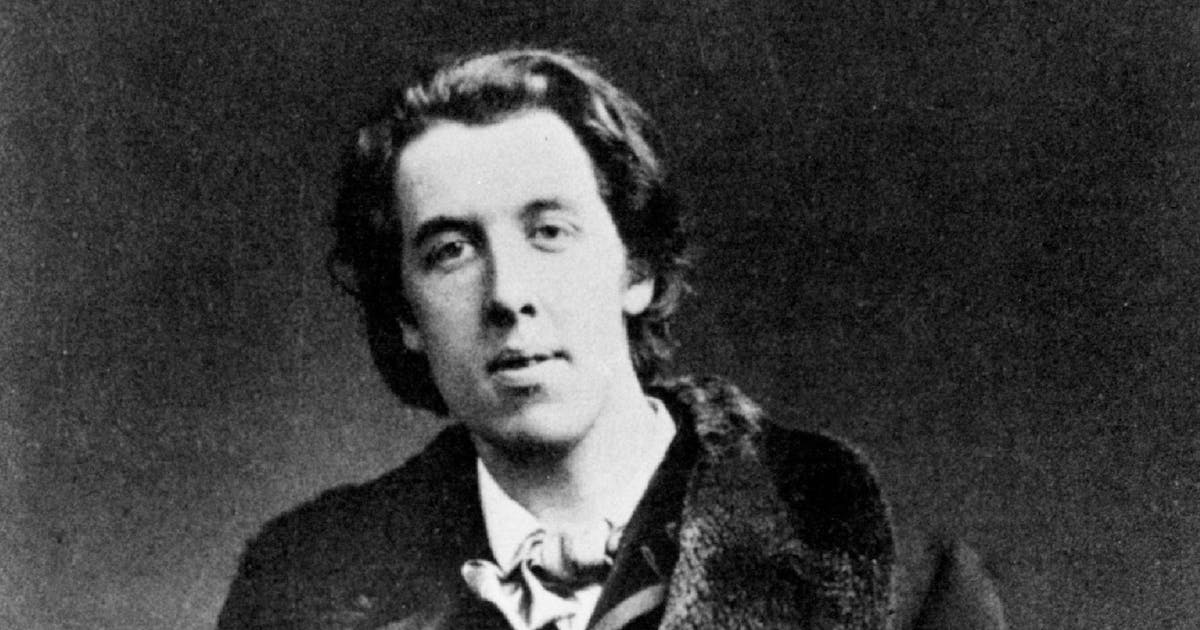Review: “Oscar Wilde: A Life”, by Matthew Sturgis
[ad_1]
If Oscar Wilde had behaved well, little would be remembered today. His poetry has been largely forgotten; his witty plays are a staple of the community theater circuit, but they fall short of the high standard of a grand theater.
But Wilde was unable to keep a low profile. At the height of success, he defied the conventions of British Victorian society, encouraged by his young lover, Lord Alfred Douglas. He eventually went to jail for multiple sexual acts with young men, and today he is a symbol of cultural rebellion and gay martyrdom.
Tragedies make the best stories, and Matthew Sturgis makes the most of Wilde in his new biography, “Oscar Wilde: A Life”. Sturgis’s lucid understanding of Wilde is acute, his account assured. Drawing on new documents, including the full transcript of the libel lawsuit that put Wilde on his way to jail, it paints an indelible portrait of a confusing and complex man.
Born to a well-known Dublin couple, Wilde’s life changed when he won a scholarship to Oxford. There he distinguished himself, with his unusual size and outrageous outfits, “more like the embodiment of Apollo than an ordinary human being”, and began his ongoing preoccupation with the Greek version of man-love. boy.
From Oxford, Wilde moved on to London, where he cut such a wide social strip that he was parodied by Punch. Already famous in England, he has traveled to over 100 American cities (including Minneapolis and St. Paul) to lecture on aesthetics and consolidate his finances.
Back in England, Wilde fell in love with Constance Lloyd, had two sons with her and took off writing plays like “A Woman of No Importance” and “The Importance of Being Earnest”, theater that entertained audiences. Victorian while lacerating their hypocrisies.
But her latent sexuality would not be denied, and Wilde dropped allusions to her inclinations in “The Picture of Dorian Gray,” a dark novel of secret lives. After meeting Douglas in Oxford, the couple, “driven by a shared and predatory enthusiasm for sex with others”, settled into London hotels and secured the services of a parade of young men.
And then Wilde made a big mistake. Enraged when Douglas’s outraged father left a card at Wilde’s club calling him a sodomite, Wilde sued him for libel, unaware that the aristocrat had hired detectives to follow him. When Wilde saw the list of trial witnesses, the young men he had slept with, “a dizzying chasm” opened at Wilde’s feet.
He lost the libel judgment and was brought to justice on multiple charges of gross indecency. Sentenced to two years in prison, Wilde and his reputation never recovered.
Sturgis captures Wilde’s contradictions: generous but erratically cruel, brilliant but careless. He doesn’t fully analyze Wilde’s wanton streak, but the evidence is plentiful: Wilde felt that “nothing is good in moderation.
Today, he is famous for these excesses: “the counter-cultural rebel, the homosexual ‘martyr’, … the precursor of cool.” Was immortality worth it? If only Oscar Wilde was here to tell us.
Mary Ann Gwinn is a Seattle literary critic and a former board member of the National Book Critics Circle.
Oscar Wilde: A Life
Through: Matthew Sturgis.
Editor: Alfred A. Knopf, 864 pages, $ 40.
[ad_2]

